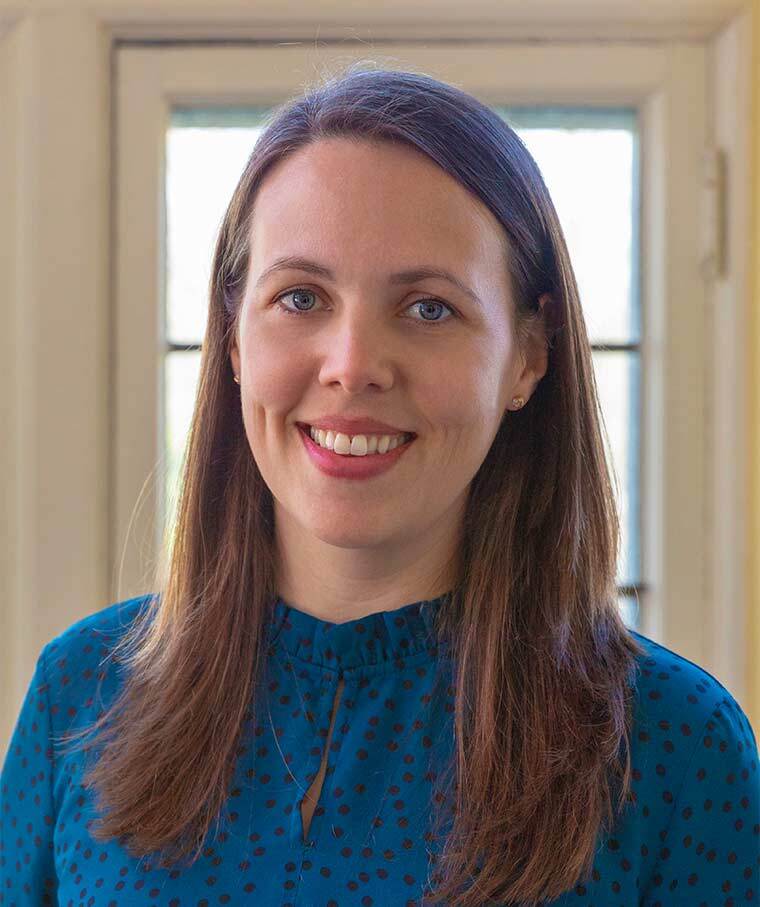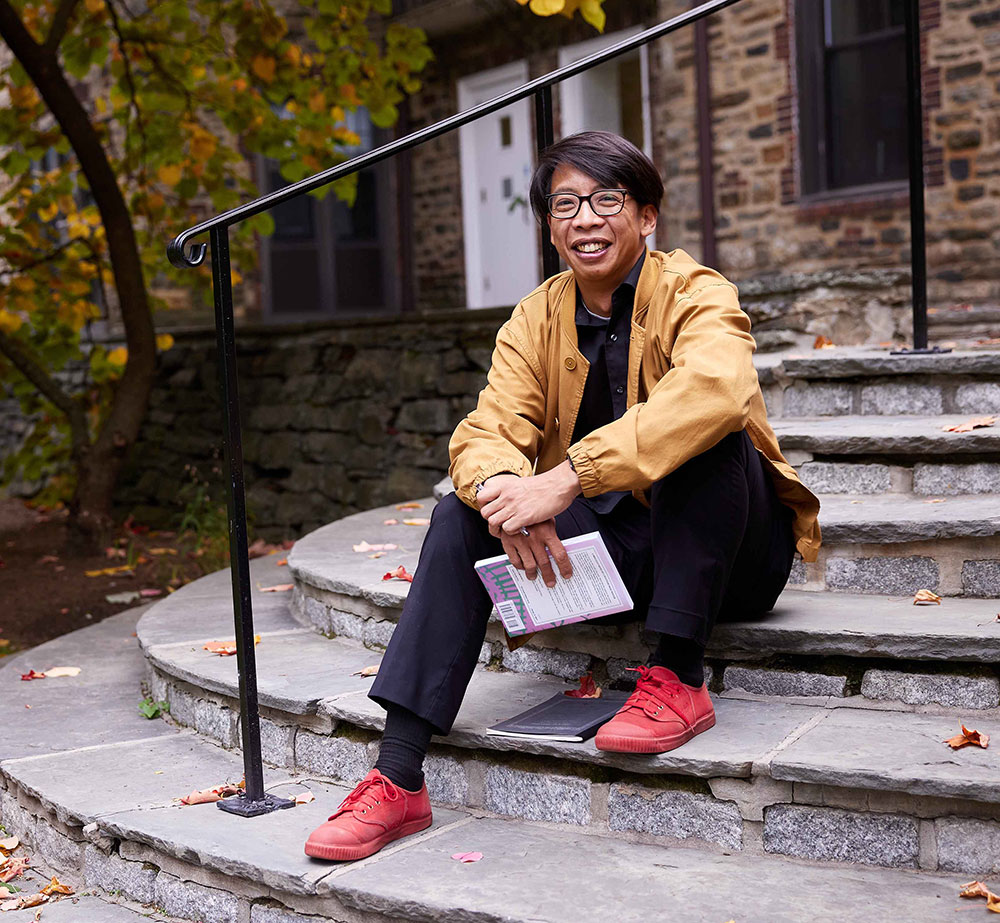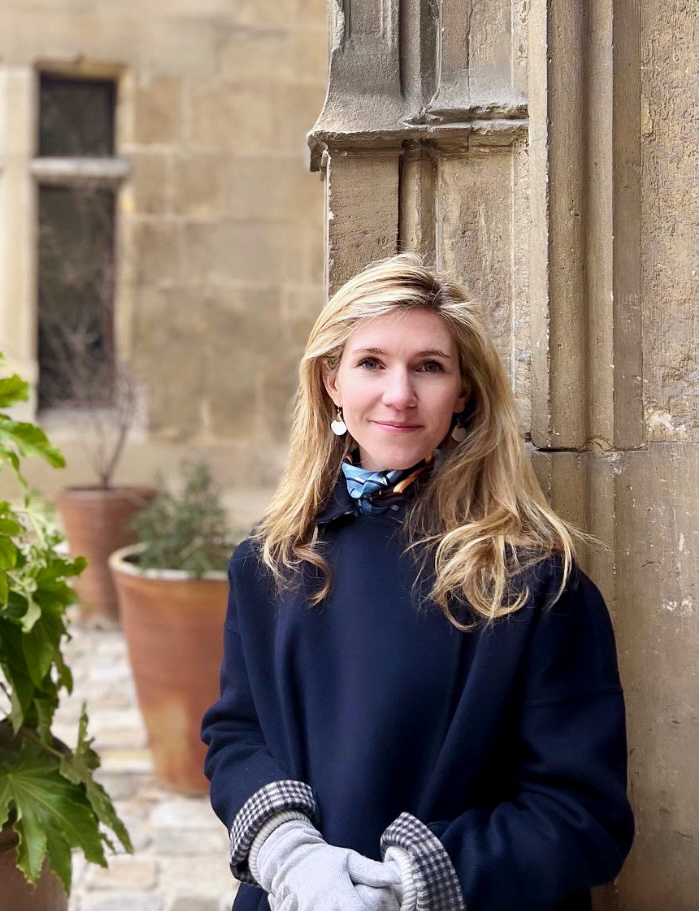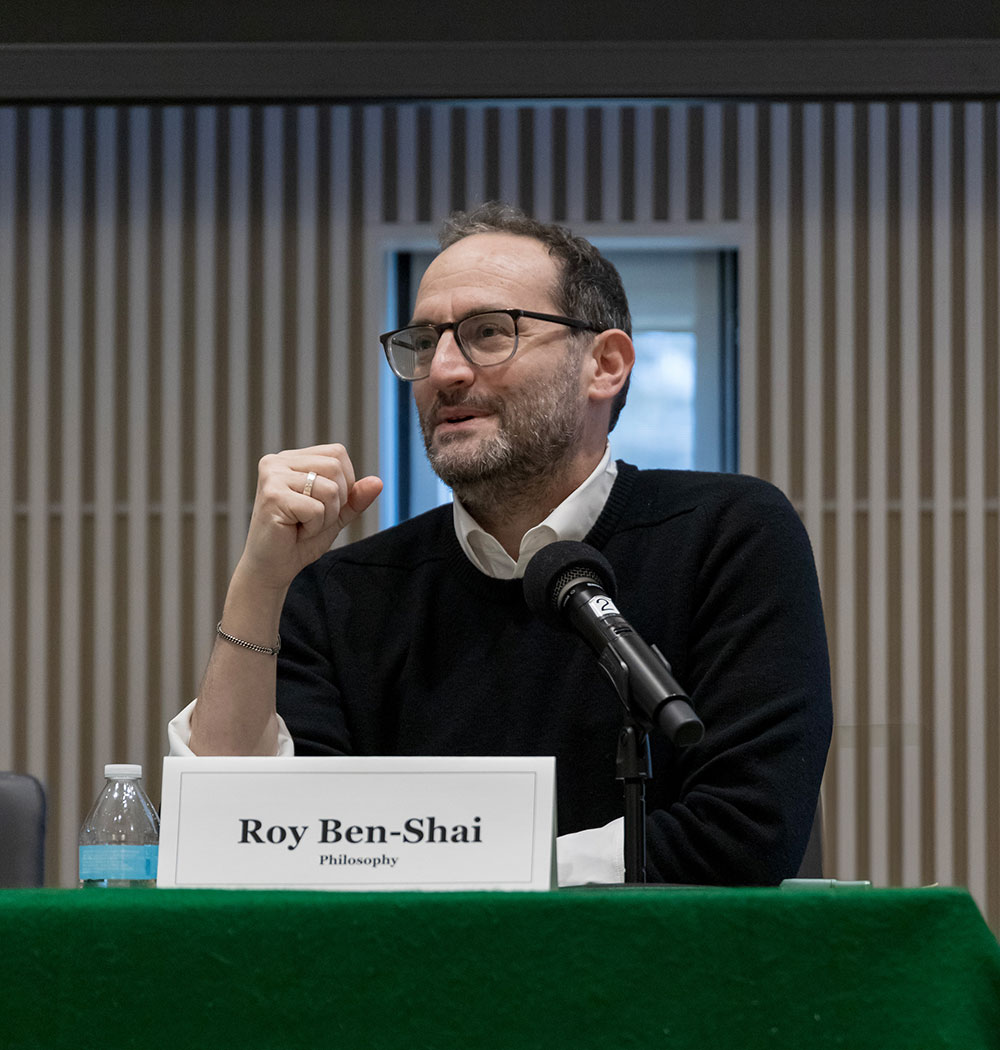On May 10, 2024, the Board of Trustees granted tenure to four outstanding Sarah Lawrence faculty members. Four individuals practiced in the art of teaching holistically. Four experts in their respective fields. Congratulations!
Cecilia Phillips Toro (Biology)
 Ceci Toro grew up in a family of scientists, people interested in the natural world. Her subject became the human brain. “Breakthroughs in neuroscience happen regularly, and there’s still much to learn. I tell students they could make a discovery, because it’s true.” Toro enjoys laboratory research, but she also requires classroom connection, and has been creative in blending the two worlds. She received a grant from the George I. Alden Trust to purchase cutting-edge laboratory equipment to support experiential education in neurobiology, and she published articles with undergraduate co-authors in the journals Zebrafish and Journal of Undergraduate Neuroscience Education.
Ceci Toro grew up in a family of scientists, people interested in the natural world. Her subject became the human brain. “Breakthroughs in neuroscience happen regularly, and there’s still much to learn. I tell students they could make a discovery, because it’s true.” Toro enjoys laboratory research, but she also requires classroom connection, and has been creative in blending the two worlds. She received a grant from the George I. Alden Trust to purchase cutting-edge laboratory equipment to support experiential education in neurobiology, and she published articles with undergraduate co-authors in the journals Zebrafish and Journal of Undergraduate Neuroscience Education.
Toro taught general biology in the Pacific Northwest before coming to Sarah Lawrence. “The opportunity to teach neurobiology specifically and to develop a variety of courses really appealed.” She found Sarah Lawrence students up to the challenge of absorbing complicated scientific literature and being active learners. “I aim to have a dynamic classroom experience that is not centered on lecture. I love having diverse perspectives, and it’s fulfilling to introduce something new to students.”
Toro is now developing a course on neurotoxins and how they interact with the nervous system. She plans to utilize this research to write a popular science book on the same subject. “I’ve never done anything like this before, and I don’t think I could do this anywhere else.”
Rattawut Lapcharoensap (Writing)
 The pleasures and perils of writing a book are familiar to Rattawut Lapcharoensap, author of Sightseeing, which won the Asian American Literary Award and was shortlisted for the Guardian First Book Award; he is currently working on a story collection and a novel. Lapcharoensap came to writing on a lark: “I took my first writing class as an undergraduate. I had encouraging professors and this lark became a passion that sent me to graduate school.” Lapcharoensap also fell into teaching. He started in graduate school and continued after earning his degree, teaching high school and then college students for a number of institutions.
The pleasures and perils of writing a book are familiar to Rattawut Lapcharoensap, author of Sightseeing, which won the Asian American Literary Award and was shortlisted for the Guardian First Book Award; he is currently working on a story collection and a novel. Lapcharoensap came to writing on a lark: “I took my first writing class as an undergraduate. I had encouraging professors and this lark became a passion that sent me to graduate school.” Lapcharoensap also fell into teaching. He started in graduate school and continued after earning his degree, teaching high school and then college students for a number of institutions.
“I knew Sarah Lawrence was a place for writers — Grace Paley, Allan Gurganus, E.L. Doctorow all taught here. I was teaching out west and keen to get back to the East Coast.” The Sarah Lawrence model, which includes year-long classes, is advantageous for writers. “Students develop the routine of writing and reading like a writer. They focus on how stories are made, which hopefully assists them when the class ends.” Lapcharoensap’s classroom is a place where students learn to follow their internal compass. “I try to show them that writing obstacles are often not an issue of spirit, rather a challenge of technique.”
Gillian Adler, Esther Raushenbush Chair in Humanities (Literature)
 Questions of spirit find their way into Gillian Adler’s classroom. Her interest in the history of religion and spirituality coupled with a passion for literature and literary criticism drew her to medieval literature. “Medieval literary texts can seem to contemporary readers quite distant and even alien, but as a teacher I have enjoyed finding ways of introducing students to the elements that both estrange and familiarize us with the Middle Ages: medieval languages, different literary styles, and enduring moral, social, and philosophical questions that poets such as Dante and Chaucer raise for us.”
Questions of spirit find their way into Gillian Adler’s classroom. Her interest in the history of religion and spirituality coupled with a passion for literature and literary criticism drew her to medieval literature. “Medieval literary texts can seem to contemporary readers quite distant and even alien, but as a teacher I have enjoyed finding ways of introducing students to the elements that both estrange and familiarize us with the Middle Ages: medieval languages, different literary styles, and enduring moral, social, and philosophical questions that poets such as Dante and Chaucer raise for us.”
Adler came to Sarah Lawrence because of the emphasis on intimate classes and talented faculty. She takes advantage of the College’s proximity to New York City by bringing students to collections of medieval manuscripts and art, thus linking observations to the texts studied in the classroom.
Sarah Lawrence’s rigorous academic schedule has not hindered Adler's research. Her first book, Chaucer and the Ethics of Time, was published in 2022, and her second book, Alle Thyng Hath Tyme: Time and Medieval Life, came out in 2023. She is currently editing The Cultural History of Time in the Middle Ages for Bloomsbury. She also developed a foundation called the New York Medieval Society, which encourages the teaching and study of the Middle Ages.
Roy Ben-Shai (Philosophy)
 Roy Ben-Shai didn’t know what philosophy was, but he was drawn to it at university. He took a philosophy course where the professor taught through film analysis. The experience was so formative that he dropped his second concentration in business to focus on philosophy. “Philosophy can be a house, a container, for a love of thinking,” he says.
Roy Ben-Shai didn’t know what philosophy was, but he was drawn to it at university. He took a philosophy course where the professor taught through film analysis. The experience was so formative that he dropped his second concentration in business to focus on philosophy. “Philosophy can be a house, a container, for a love of thinking,” he says.
“It is an open secret that Sarah Lawrence is a place that encourages serious inquiry,” Ben-Shai says, adding his appreciation of the round tables ubiquitous to a Sarah Lawrence classroom. “I want to give students the opportunity to be free, confident, and open. I dissuade judgment. I try to get the students to respond to each other.” This collaborative environment benefits students and it helps Ben-Shai’s own research. In 2023, he published Critique of Critique and is currently working on a new book. He has a study group with students to talk about his research. “I love that about this academic environment. For people with more solitary vocations, you have a way to connect. I learn from the students and they learn from me.”